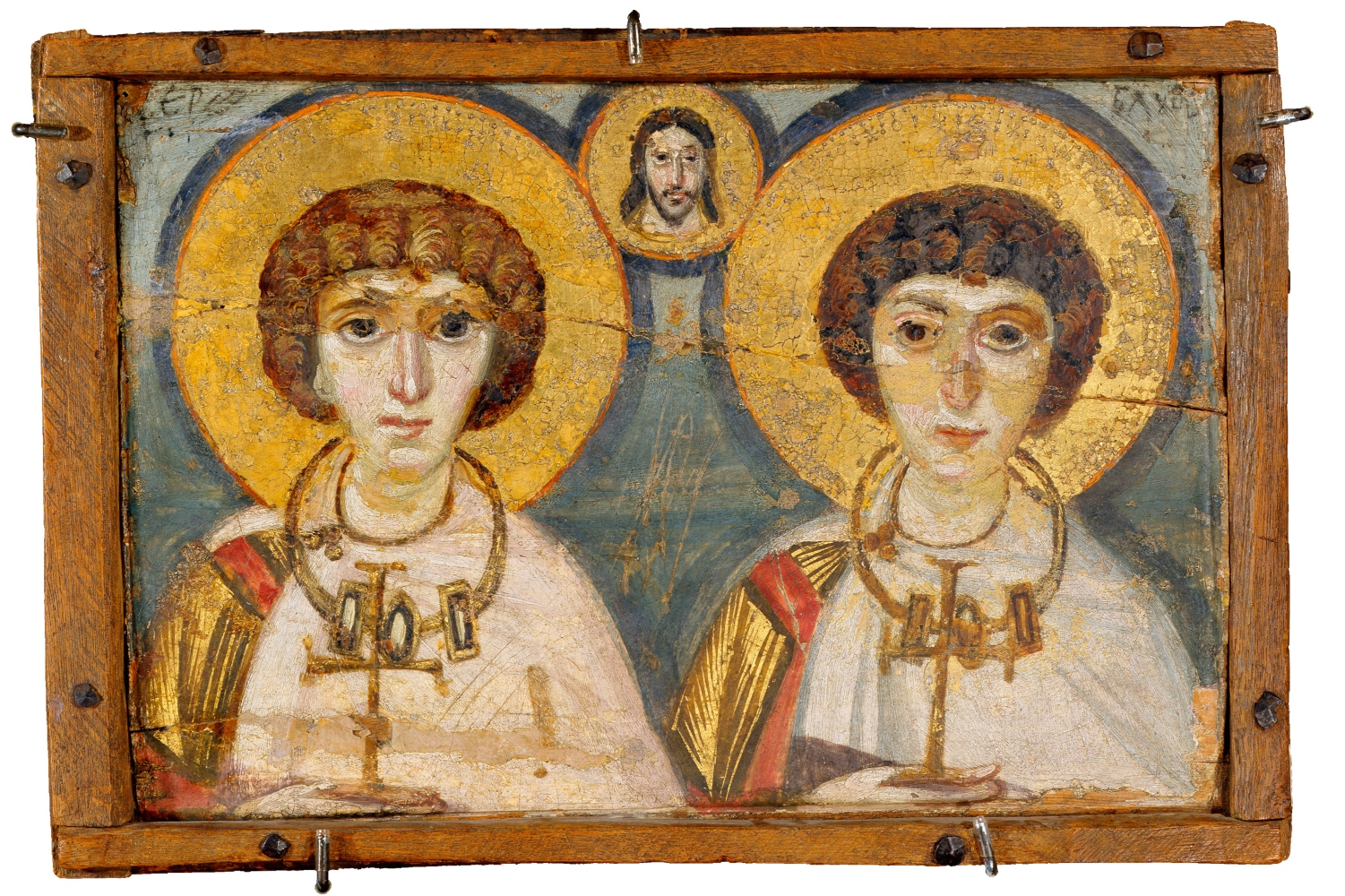
Last month, the Louvre was involved in a top secret mission to evacuate 16 fragile cultural objects out of Ukraine for safekeeping. The artifacts traveled in convoy from the Bohdan and Khanenko museums in Kyiv via Poland and Germany and are now no longer at serious risk of damage or theft.
An exhibition of five sacred icons from the group opened earlier this week in the Denon wing at the Paris museum. Four are 6th and 7th century encaustic paintings on wood that originated from Saint Catherine’s Monastery in Egypt. The fifth is a late 13th- or early 14th-century micro-mosaic from Constantinople with a highly intricate gold frame.
Micro-mosaic icon representing Saint Nicholas. Photo: © Khanenko Museum.
Ukraine’s culture minister attended the display’s official unveiling at the Louvre on Wednesday. “It’s a very symbolic and effective gesture of support for Ukrainian culture,” he told members of the press, according to Reuters. “[The Russians] are stealing our artifacts, they ruined our cultural heritage sites and this shows how big and huge Ukrainian culture is, which is part of world heritage.”
The initiative to secure the icons has been in the works since December 2022, when Louvre staff first began collaborating with colleagues at the two Ukrainian museums. The unprecedented mission was developed in partnership with the International Alliance for the Protection of Heritage in Conflict Areas and was kept entirely secret.
“Like other museums, we have been concerned to see how we can support our Ukrainian colleagues. In the autumn, faced with the intensity of the conflict, we decided to carry out this rescue,” the Louvre’s president, Laurence des Cars, told the press agency AFP. “It’s not much in a sea of sadness and desolation, but it’s a symbol.”
The Louvre’s new display “The Origins of the Sacred Image” sets out to explore early classical influences on Byzantine civilization and will be supported by new analysis and research by Ukrainian and international specialists. It has also been billed as something of a teaser for what audiences can expect from the Louvre’s forthcoming new department of Byzantine and eastern Christian art, set to open in 2027.
The 16 objects are now being safeguarded at the Louvre, but there are also efforts to protect cultural treasures in Ukraine. Shortly after war broke out in February 2022, the Khanenko removed and hid its entire collection of 25,000 works. This limited the damage of a missile strike that hit the historic building last October. The Taras Shevchenko Museum was also targeted.
Another museum collaboration in support of Ukraine was announced this week. The Met and the Smithsonian are partnering to help train a group of soldiers to become Monuments Men, who will better equipped to protect cultural heritage while deployed in Ukraine.
“The Origins of the Sacred Image: Icons from the Bohdan and Varvara Khanenko National Museum of Arts in Kyiv” runs through November 6, 2023.
More Trending Stories:
Is Time Travel Real? Here Are 6 Tantalizing Pieces of Evidence From Art History